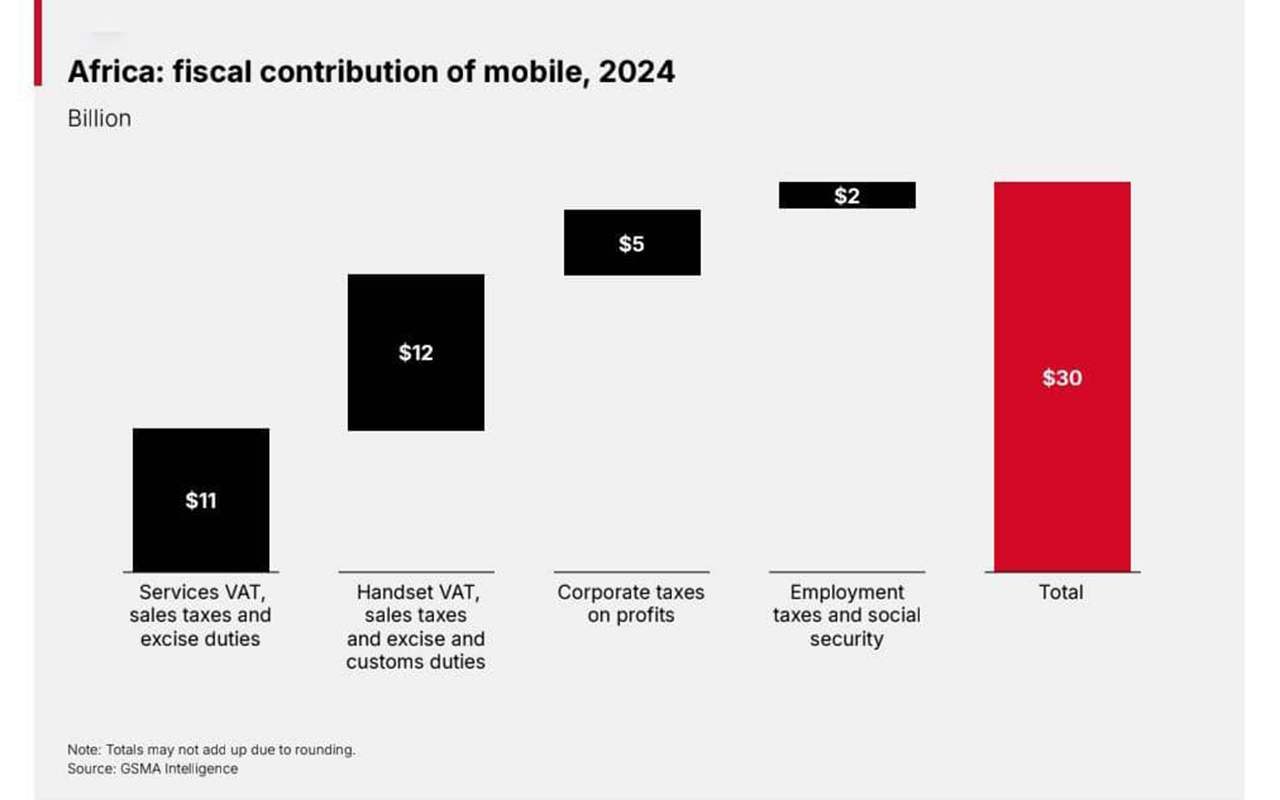The total tax revenue in Africa reached $320 billion in 2024, representing an increase of three per cent over the previous year. The mobile sector in Africa made a substantial contribution to the funding of the public sector, with more than $30 billion raised through taxes. The large contribution was driven by handset VAT, sales taxes and excise and customs duties, which brought in $12 billion.
GSMA, in ‘The Mobile Economy Africa 2025’, disclosed that in 2024, the fiscal contribution of the mobile ecosystem represented 9.8 per cent of the total tax revenue in the region.
GSMA said beyond its direct contribution, the mobile sector could enable a more efficient tax revenue collection by enhancing tax processes across the economy.
According to it, one channel for achieving this is through digital payments and mobile money, which is particularly relevant in developing countries in Africa, where large segments of the economy are informal. Another method involves leveraging mobile platforms for tax filing and payment, it said.
It stressed that high compliance tax costs are a main barrier, discouraging individuals and small and medium-sized enterprises (SMEs) from paying taxes.
GSMA said governments are rolling out mobile apps for filing and paying taxes to reduce friction and improve compliance rates. Further, the report observed that in 2024, mobile technologies and services generated 7.7 per cent of GDP across Africa, a contribution that amounted to $220 billion of economic value added.
According to it, the greatest benefits came from the productivity effects, reaching $120 billion, followed by the direct contribution, which generated $60 billion. This was driven by the growth in 5G adoption in 2024, with strong 5G growth in markets such as South Africa, Réunion and Botswana.
The telecoms advocacy body said the mobile ecosystem is formed of three categories: mobile operators, infrastructure and equipment and content and services. The infrastructure and equipment category encompasses network providers, device manufacturers and IoT companies. Meanwhile, the content and services category encompasses content, mobile applications and service providers, distributors and retailers and mobile cloud services.
The report revealed that mobile operators and the wider mobile ecosystem provided direct employment to approximately five million people in Africa in 2024. In addition, economic activity in the ecosystem generated around three million jobs in other sectors, meaning that around eight million jobs were directly or indirectly supported.
Projecting into the future, GSMA observed that by 2030, mobile’s contribution in Africa is expected to reach approximately $270 billion or 7.4 per cent of GDP, driven by the improvements in productivity and efficiency brought about by the continued expansion of mobile services and the growing adoption of digital technologies, including 5G, IoT and AI.
According to it, between 2025 and 2030, mobile’s contribution is expected to grow at a CAGR of 3.7 per cent, slightly below the regional GDP growth forecast at 4.5 per cent in 2030, meaning the contribution as a percentage of GDP will be slightly lower towards the end of the decade.
“This is because the adoption of advanced digital technologies is restricted to a few countries, which highlights the need to design policies to accelerate the digitalisation of the economy across industries to benefit all countries in the region,” it stated.






